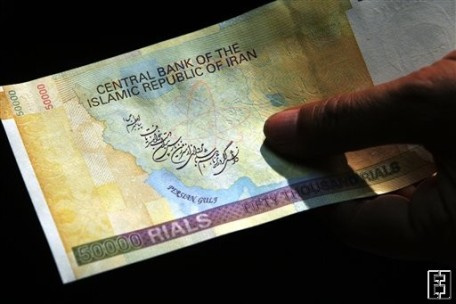How Not To Fall Behind Iraq and Afghanistan

By: Valiollah Seyf
In the latest report published by the World Bank, Iran’s business rank has been promoted from 131 in 2010 to 129 in 2011, while the factors with positive impact include: beginning businesses, obtaining credit, obtaining building permits, cross-border trade, and executing contracts and their binding nature, among which the most considerable impact is that of obtaining credit with 20 percent improvement. Other indices, except that of tax payments, had negative impact; namely their situation has worsened.
It is interesting that the index of beginning a business has improved, but the index of closing a business has worsened. The trend of changes from 2008-2011 shows that indices of beginning a business, obtaining building permits, cross-border trade, executing contracts and their binding nature and closing a business have improved, while the indices of registration of properties, support of investors and tax payments have worsened. Therefore, it may be concluded that there has not been any single general policy in Iran, or no needed arrangements among the relevant organizations and institutions.
Obstacles and challenges ahead
As mentioned, there has not been any single general policy in Iran, or no needed arrangements among the relevant organizations and institutions. This may be the most important and effective factor in the situation of business in Iran. Seemingly, considering the lack of corresponding information and the low level of public awareness about general laws and regulations, the success of business is not at an appropriate level in Iran. This is the issue that may be the reason for Iran’s low rank among the businesses of other countries; however, the issue needs comprehensive review.
In the top-ranking countries, countries such as Saudi Arabia (ranked 11), Georgia (12), Thailand (19), Bahrain (28), Peru (37), Columbia (39), and UAE (40) are seen. In the bottom of the table, most of the African countries are placed. Among the Middle East countries and Iran’s neighbor countries, only Iraq (166) and Afghanistan (167) stand with lower ranks than that of Iran. Review of the components of business index in Iran shows that the lowest ranks belong to the main indices such as support of investors (167), properties registration (156), obtaining building permits (143), employment and disposal of labor force (137), cross-border trade (131 and closing a business (111), while the highest ranks are occupied by beginning a business (42), executing contracts and their binding nature (49) and obtaining credit (89). Nevertheless, it can be concluded that it is necessary to review of the laws and regulations including labor law (discussed for many years), imports and exports law and corporate governance (newly heeded with no certain definition for firms and industry owners).
Recommendations and Conclusion
* Study and analysis of the obstacles and challenges existing in the business atmosphere;
* Study of components of the business index of successful countries, especially the neighbors, to find solutions for improving the business atmosphere;
* Revision of laws and regulations
* Attention to corporate governance and binding firms to observe it;
* Improvement of public awareness level through providing them with inexpensive necessary information about beginning and closing a business; and
*Increase in the volume of the economic activities of the government and the affiliated governmental and quasi-governmental institutions;
The last item indirectly has impact on the firms’ activities; therefore, it is necessary in business and has considerable impact.

